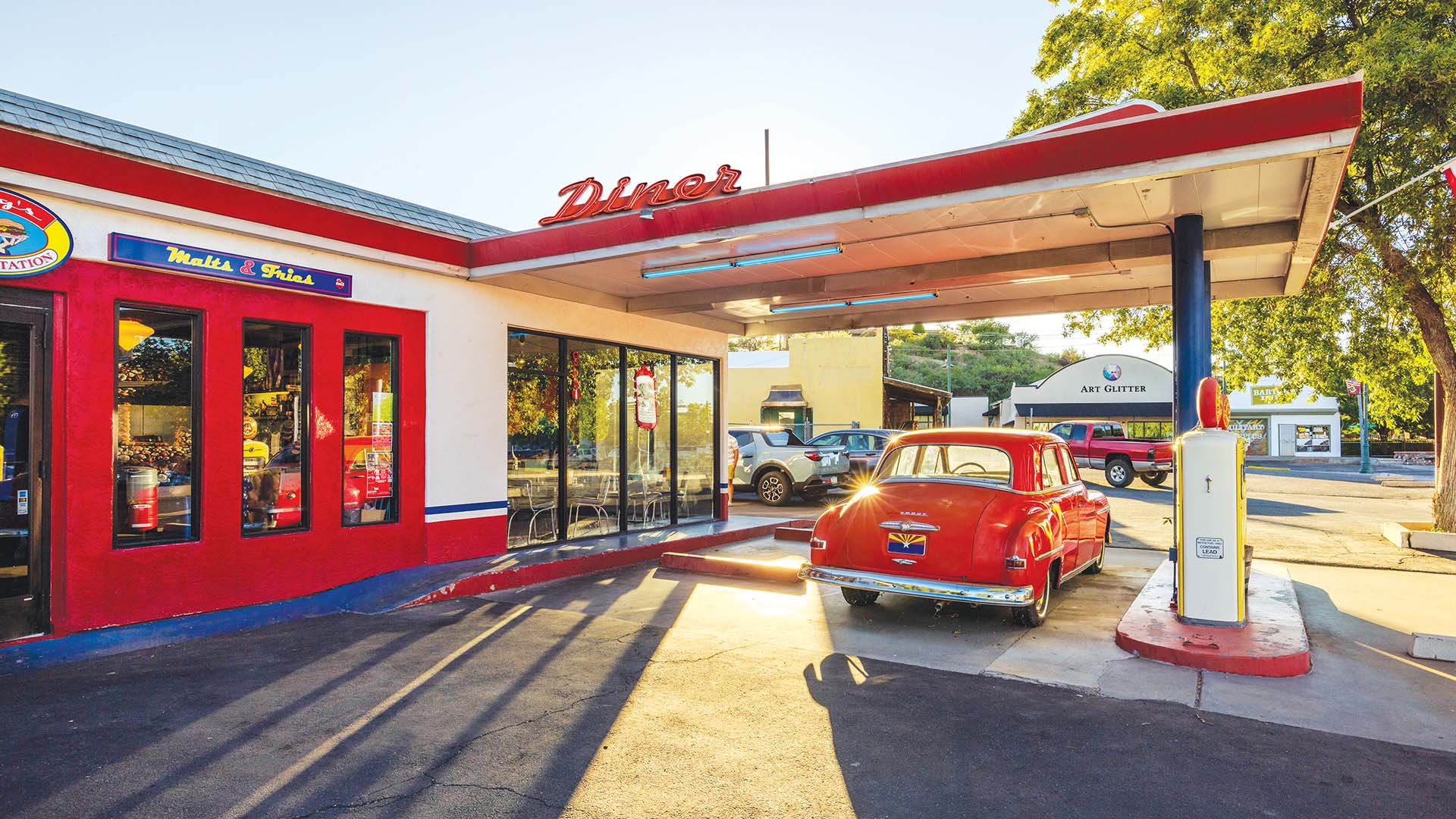Food & Drink
Experience rich Arabian flavors at Saudi Arabia’s culinary crossroads.
Saudi cuisine reflects its Arab heritage, as well as its position on the crossroads between Asia, Europe, and Africa. It’s likely you’ll recognize many of its staple dishes from the cuisines of neighbouring nations, but the exact style of each dish is specific to Saudi Arabia.
Like most countries, Saudi cuisine is centred on three meals per day. Breakfast is usually a mix of flatbreads, cheeses, fruits, dates, and jams. Breakfast is usually light and accompanied by coffee or tea and juices. Lunch is typically the heaviest meal of the day. Rice and chicken are the staples, with spiced chicken dishes such as kabsa (the national dish), machboos, and shawarma the most common. Dinners are usually lighter and consist of soups, stews, salads, and meat platters, including barbeque. After dinner, it’s typical to enjoy some desserts, including umm ali, a pastry with honey, nuts, cinnamon, and milk. Adhering to Islamic dietary laws, all meat in Saudi is halal and pork is not available.
Coffee occupies a significant role within Saudi culture. It’s hard to go anywhere without being offered a cup of qahwa (Arabian coffee) as a show of hospitality. Qawha is typically rich and spicy, with a more pronounced flavour of cinnamon and cardamom than many visitors might be used to. Juices such as mango, lemon, or even mint are also common throughout the nation.
What is Saudi Arabia’s traditional cuisine?
Arab cuisine shapes the local table in Saudi Arabia. The signature dish is kabsa, a delicious mix of rice, meats, vegetables and spices. Far simpler, but almost as delicious is jareesh, which is crushed wheat cooked with ghee, chicken broth, and delicious spices. Let mutabbaq pastries become your new street food obsession, or for a touch of Bedouin tradition, dive into a plate of mandi, another delicious dish that blends rice and meat.
What is the dining etiquette in Saudi Arabia?
The word sahtain begins the meal in Saudi Arabia, or the slightly more devout bismillah (in the name of God). Close the meal with daimah (may there always be plenty at your table). If eating with utensils, keep your fork in your left hand, and your spoon in your right, favouring the spoon (which is far more practical for most Saudi dishes anyway). Remember, do not eat anything directly from your left hand or use it to pass food. Washing hands both before and after every meal is normal in Saudi Arabia, and men and women may be asked to dine separately in more conservative settings. Even when you’re invited to sit down at the table, allow elders to sit first, unless you’re specifically escorted to a seat.
What is the drinking etiquette in Saudi Arabia?
Having and consuming alcohol remains illegal in Saudi Arabia. The kingdom took the first steps toward loosening these laws in early 2024, but this is in its infancy, and is seen by many as a way to counter the illicit flow of alcohol into the country via diplomatic missions. That said, if you want to take a break from alcohol during your vacation, Saudi Arabia is a great place to do it, with some uniquely local concoctions. Mocktails abound! It’s common to toast the end of the day with a Saudi cooler, also known as Saudi champagne, which is a blend of apple juice, sparkling water, and slices of orange and lemon. Blackberry cordial is also popular during the Ramadan months. Toasting to the health of the host or the success of business at hand is usually appropriate.
Does Saudi Arabia cater to dietary restrictions?
You won’t find pork or alcohol at any Saudi table (at least, not officially), according to Islamic law. It’s easy enough to get by as a vegetarian without too much compromise, and as long as you’re clear about any allergies, you shouldn’t run into any trouble at most modern restaurants or hotels. However, understand that within Saudi culture, fish is often not considered meat, so locals might assume that vegetarians are actually pescatarians, so just be clear when communicating dietary preferences. Consider having your allergies written on a card in Arabic to prevent any confusion.
What do meals typically cost in Saudi Arabia?
Everyday meals in Saudi Arabia are not too expensive, with a meal at a local restaurant costing around US $7. A three-course dinner for two will come closer to US $60. Local beer is also very cheap (albeit non-alcoholic, of course).
Travel Stories
Get inspired about Your Trip to Saudi Arabia
Unlock more by subscribing to our newsletter.
With our newsletter, you’ll get access to regular communications that inspire you and help you explore the world your way.



